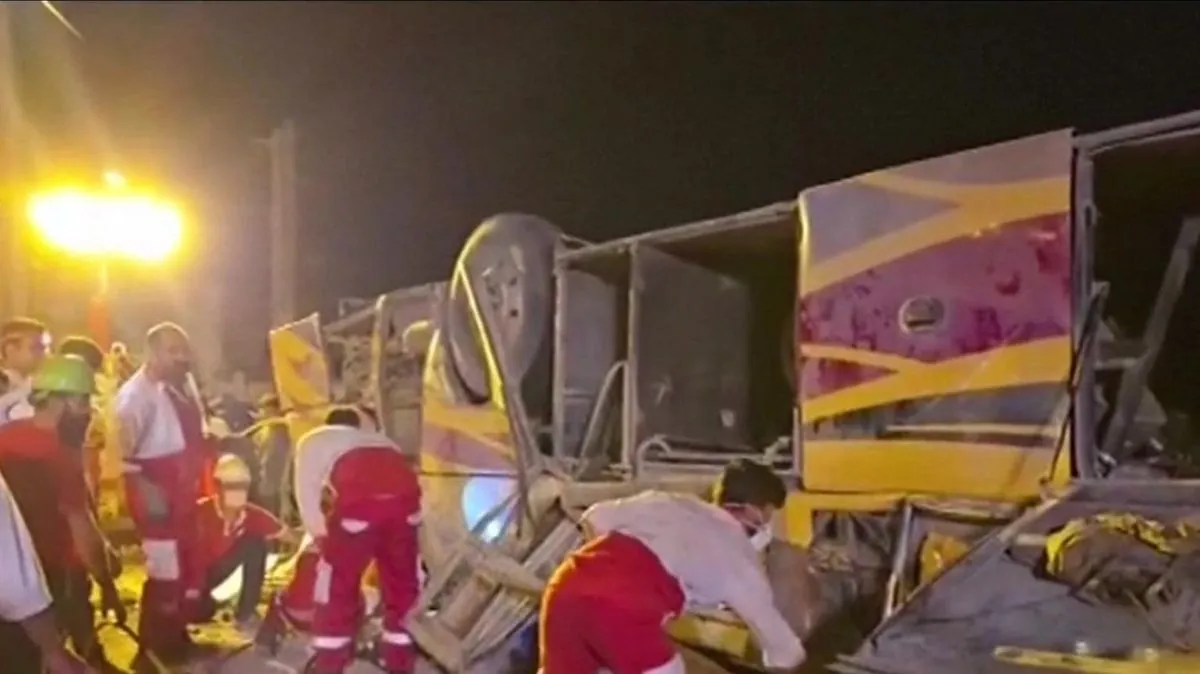In a tragic turn of events, 28 Shiite pilgrims from Pakistan lost their lives in a bus accident in Iran while journeying to the holy city of Karbala in Iraq. The incident, which occurred approximately 500 kilometers southeast of Tehran, has left the Shiite community in southern Pakistan in mourning.
Funerals for the victims were conducted across various locations in Sindh province, with hundreds of grieving attendees paying their final respects. Jaafar Hussain, a local Shiite leader, confirmed that the deceased were laid to rest in different graveyards throughout the region.
Following the accident, Prime Minister Shehbaz Sharif ordered a military aircraft to repatriate the bodies and injured individuals to Pakistan. This swift action underscores the government's commitment to supporting its citizens during times of crisis.
The cause of the crash near Taft, a city in Yazd Province known for its pomegranates, remains officially unannounced. However, Zawaar Javed, father of one of the victims, revealed that his son had sent a WhatsApp message moments before the accident, indicating brake failure. This account aligns with a statement from Mohammad Ali Malekzadeh, an Iranian emergency official, who attributed the crash to faulty brakes and driver inattention.
"My son sent me a message on WhatsApp, saying the brakes of bus had failed, and later I heard news about the accident."
The pilgrims were en route to Karbala to commemorate Arbaeen, marking the end of the 40-day mourning period for Imam Hussein, grandson of Prophet Muhammad. This annual event, one of the largest gatherings worldwide, holds profound significance in Shiite Islam, the second-largest branch of the faith.
The Battle of Karbala, which occurred on October 10, 680 CE, saw Imam Hussein fall to Umayyad forces. This historical event, taking place during Islam's tumultuous first century, continues to resonate deeply within the Shiite community.
It's worth noting that the journey from Pakistan to Karbala spans approximately 2,500 kilometers, highlighting the devotion of these pilgrims. The city of Karbala itself is situated about 100 kilometers southwest of Baghdad, Iraq's capital.
This tragic incident serves as a stark reminder of the risks associated with long-distance travel in the region. Iran, unfortunately, has one of the highest rates of road accidents globally, emphasizing the need for improved safety measures on its highways.
As the community grapples with this loss, the incident has brought attention to the broader issues of road safety and the lengths to which devotees go to honor their faith. The Pakistani government's swift response in repatriating the victims demonstrates the importance of diplomatic cooperation in times of crisis.
